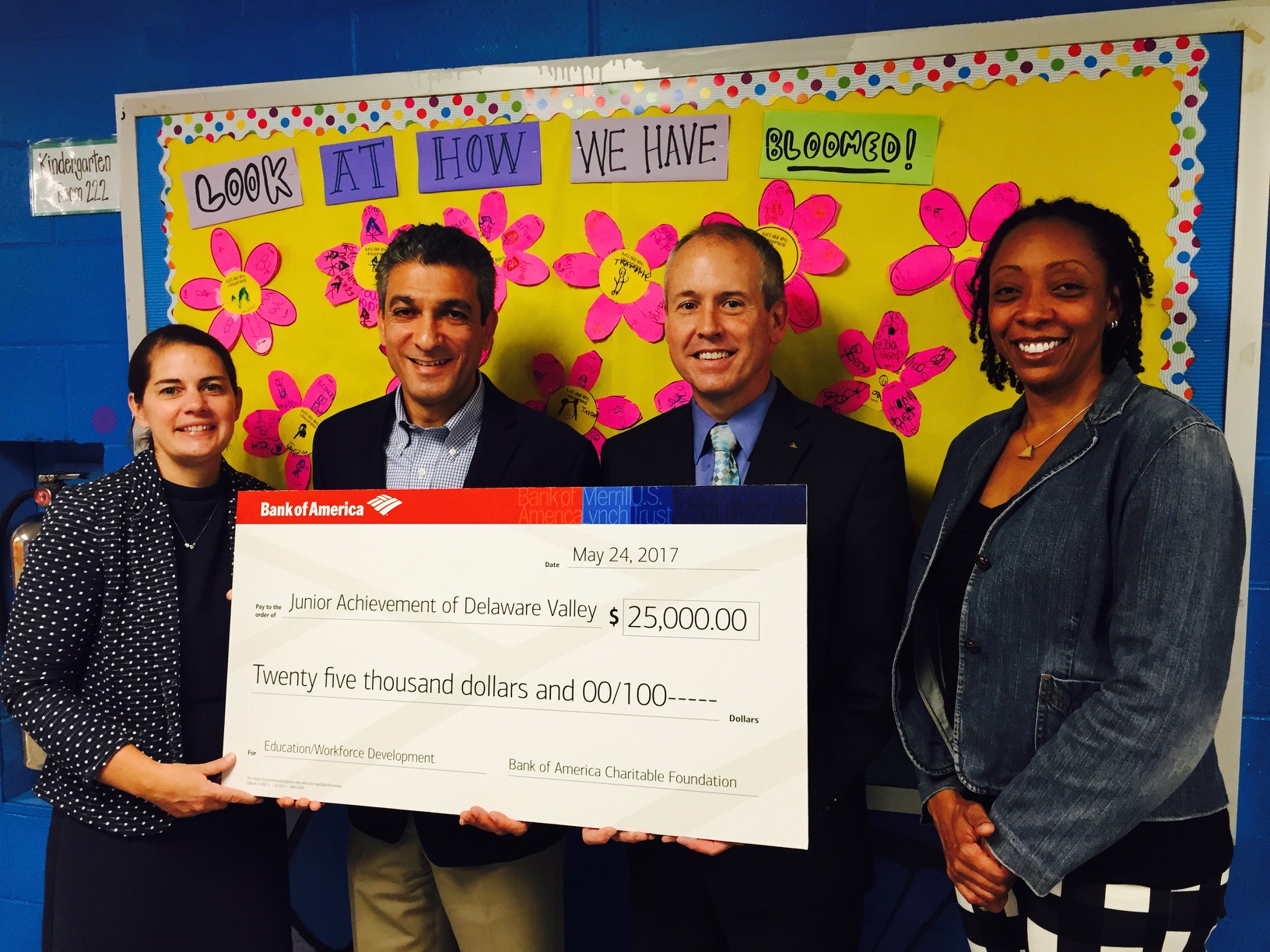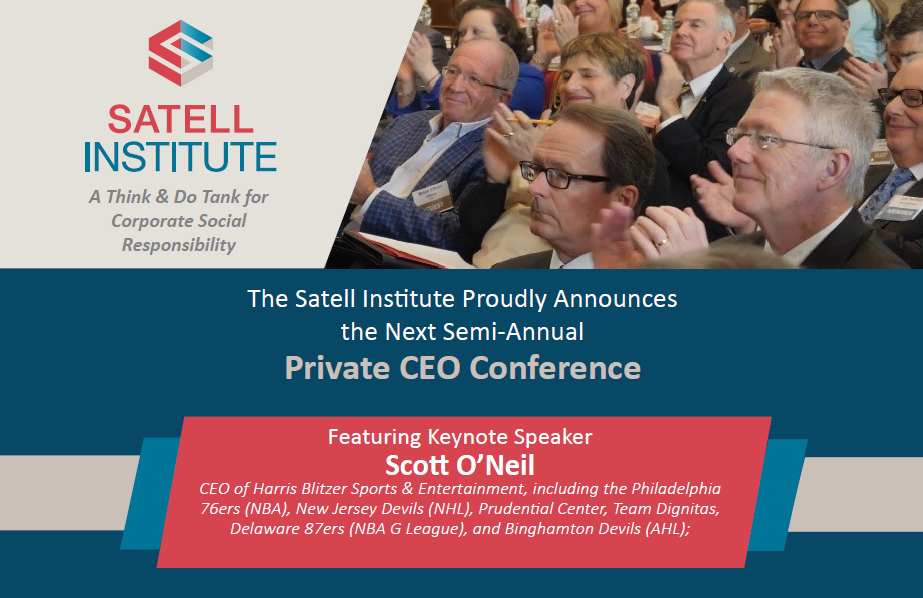Paul Kappel Jr. is a nationally-recognized nonprofit leader with more than 25 years of experience in education, including his current role
as president of Junior Achievement (JA) of Southeastern Pennsylvania. Paul embodies the JA mission of inspiring students to dream big and reach their potential through his dedication.
Junior Achievement, celebrating its centennial this year, is the nation’s largest organization dedicated to empowering young people with the
knowledge and skills they need to succeed in today’s global economy, plan for their futures, and make smart academic and economic choices. This mission is achieved through three pillars: entrepreneurship, financial literacy and work-ready programming.
Nationwide JA reaches nearly five million students per year in more than 200,000 classrooms and engages nearly 250,000 volunteers to prepare the next generation for the global economy. In Southeastern Pennsylvania alone, JA reaches 30,000 students each year and leverages 1,800 volunteers across the eight-county region. Through a partnership with Bank of America (BOA), Junior Achievement became an active nonprofit member of the Satell Institute in 2016.
In his answers to four questions, Paul shares what he has learned about successful partnerships from two decades with JA.
You sit on the nonprofit side, so you have a perspective from the receiving end of Corporate Social Responsibility (CSR) initiatives. What have you learned about building strong partnerships to achieve JA’s goals?
I have learned that alignment counts. When companies choose a nonprofit partner that aligns with their organizational culture, as well as their mission, both sides benefit. Not all partnerships are a fit, and that’s okay. For Junior Achievement, we have found that our most robust partnerships are with companies with a strong entrepreneurial culture because it’s a spirit that our organization embodies and it’s a core piece of what we teach young people.
Obviously, that “fit” is something you have found with Bank of America. Tell us about your partnership with them.
That’s right, Bank of America is a great fit for JA. They encourage financial literacy and believe in work readiness which aligns with our mission, and we have found a strong entrepreneurial culture among their employees. We have been grateful recipients of funding from Bank of America for some time. The work of the Satell Institute and its four-year funding requirement has created stability in our funding and strengthened our partnership with BOA.
Bank of America is a well-rounded partner – it’s really a three-pronged partnership. Not only do they provide essential funding to support our programming, but they provide much needed ‘people resources.’ They provide employee volunteers each year that work with our K-8 students primarily in Philadelphia and Bucks County. For us, volunteers make such a difference in the classroom because the young people hear the messages from people who have lived the lessons being discussed. In some cases, these are lessons they are hearing from other adults in their lives, but kids—as I know from my kids at home—sometimes need to learn from people who aren’t their parents. They hear it better. For Bank of America, their employees enjoy the interactive volunteer opportunities in the classrooms. They leave feeling engaged and positive about their employer-supported community investment.
The other ‘people resource’ that Bank of America provides is expertise in the form of a board member. Having a highly engaged board member from Bank of America has provided JA with expertise and insights that are so vital.
Our partnership with BOA has also given us something else. It has created a great case study for us to show other corporations what a strong partnership with JA can look like and the benefits that partnering with JA can provide to the for-profit partner.
It sounds like you have really built out the partnership with Bank of America. What do you believe made the difference when you were starting the relationship?
I believe strongly that you should always ask a potential corporate partner, “What is the ROI you need from this partnership?” and that’s what I did. I know that companies are typically looking to gain something from these partnerships, even if it’s just to make a significant impact on a specific community need. Many companies are looking for volunteer opportunities for employees which was true for BOA. That makes sense because meaningful volunteer experiences have been shown to increase engagement and improve employee retention.
I find it helpful to understand the partner’s goals, so we can work together to achieve them. If you don’t ask the question, you can’t fully understand their objectives and build a partnership that works for both sides.
Earlier you mentioned that the multi-year commitment has created stability. What else has membership in the Satell Institute provided?
A couple of things. First, that funding stability I mentioned allows our leadership to focus on strategic decisions knowing that BOA has already committed to this four-year investment. The stability lets us concentrate on growth opportunities like our current effort to expand programming to Reading, Pa.
SI also reframes the conversation around multi-year commitments from funders. For JA and for all nonprofits, the Satell Institute provides a valuable, credible and respected third-party voice in the conversation.
Announcing the Next Satell Institute Private CEO Conference Featuring Scott O’Neil
We are pleased to announce the next highly-anticipated Satell Institute Private CEO Conference. On April 10, 2019, more than 150 of the region’s CEOs and top business leaders will attend this semi-annual conference focused on the increasingly important business case for Corporate Social Responsibility –Dream it. Do it. Learn from it.
Scott O’Neil, CEO of Harris Blitzer Sports & Entertainment, including the Philadelphia 76ers (NBA), New Jersey Devils (NHL), Prudential Center, Team Dignitas, Delaware 87ers (NBA G League), and Binghamton Devils (AHL), will present the keynote address. Scott’s focus on CSR, talent and culture has created a dramatic business success in a highly-competitive industry.
The Conference will also feature remarks from other top business leaders and the conference hallmark, candid peer-to-peer discussions with CEOs on their Corporate Social Responsibility practices.
This event is by invitation only.



